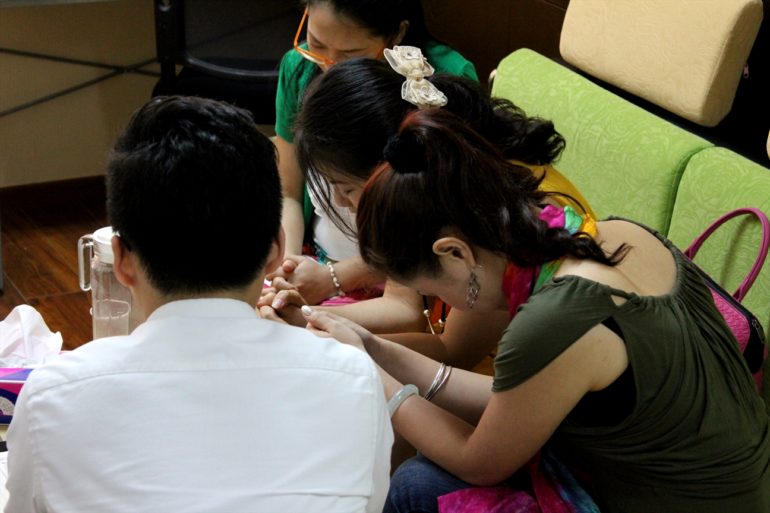
China’s Christians may not be surprised by recent tighter government control of religious affairs, including a ban on online Bible sales. But they are unsure what comes next.
Following this month’s announcement that Bibles could no longer be made available online, large websites like Taobao, Jingdong, Weidian, Dangdang and Amazon China have now stopped selling them. The Catholic news website UCAN reported that “books about Christianity have also been blocked and the business licenses of some shops have been cancelled”, and that, according to social media users, websites had started to stop the sale of Bibles as early as 30 March.
Important books for other major religions, such as the Quran and Buddhist sutras, have not been taken down and are available online in China, reports the New York Times.
The ban on online sales does not surprise Thomas Muller, an Asia analyst for Open Doors International, a charity that supports Christians who live under pressure for their faith: “This ban has existed for years, but it was simply not implemented until recently and the authorities seem to have now stepped up their efforts in this respect. It remains unclear, however, what percentage of Bibles has been sold online or via apps”.
As it is mainly the younger generation that uses online resources such as Bible apps, the ban will hit them hardest “but Chinese are creative”, said a local source, who World Watch Monitor cannot name for their own security.
The Bible is still freely available in bookshops attached to churches belonging to the state-sanctioned TSPM (Three-Self Patriotic Movement. These are reported to have cameras installed for surveillance purposes, World Watch Monitor heard from other experts outside the country.
The source in China said “some unregistered churches have stocked some printed Bibles of different versions, like study Bibles, for their members and, so far, the authorities do not impose such tight restrictions to remove these Bibles, though the pastors generally are occasionally invited in to ‘take tea’ with the authorities. The exceptions are those churches already considered high-profile and targeted by the authorities.” ‘Taking tea’ is a polite way of saying the government ‘invites’ them to a meeting.
Smaller churches, though, were already facing a lack of access to resources. “We are a very young Church in China, we’ve grown rapidly. We need more biblical training. We can’t even have normal communication channels with the outside world. We have no Gmail, no WhatsApp, no Facebook. Compared to the lack of communication channels, the new regulations are a small thing,” a Beijing pastor told World Watch Monitor.
‘Grey area’
China is in fact the world’s largest producer of Bibles, but the Bible has never been entirely legal inside the country. Unlike the Quran, it does not have a China-issued ISBN identification number and has always been “classified as an internal publication for internal distribution within and by registered Christian churches only”, according to Joann Pittman, vice-president of China Source, a non-profit organisation supporting the Chinese Church.
Selling Bibles in any other way has always been illegal, but the Internet offered a “grey zone” that the government allowed to exist, she said. Until now.
According to China Source President Brent Fulton, China’s Christians can expect a “shrinking of the grey area”, although it “isn’t just about religion”.
“The [Communist] Party is shoring up its control internally while seeking to blunt the effects of outside forces that it sees as harmful,” Fulton said. “For the Church this means more direct efforts by the Party to control unregistered Church activities while demanding that the Church actively contribute to the Party’s agenda: economic development – the ‘China dream’.”
‘Re-translating the Bible’
A significant development was the Communist Party’s recent move to disband the Religious Affairs Bureau and bring religion under its direct control. Fulton says one of the things the Party will want to do is to “cultivate loyal pastors and seminary professors within the official Church to promote ‘Sinicized’ Christianity”, referring to President’s Xi Jinping’s message that religions in China must be Chinese in orientation.
According to a paper published by China’s State Administration for Religious Affairs, “one of the biggest tasks in the coming years is to enhance ‘Chinese-style Christianity and theology’ by reinterpreting and retranslating the Bible”, UCAN reported.
The document, titled “Principle for Promoting Chinese Christianity in China for the Next Five Years (2018-2022)”, was presented in Nanjing, in eastern China, on 28 March. Nanjing is also home to Amity Printing Company, the largest Bible-printing company in the world and main production centre for Bibles in China.
The Three-Self Patriotic Movement and the government-sanctioned China Christian Council have agreed to cooperate to “dig deeper into the contents of the Bible to find content compatible with the core values of socialism; to organise a working team to write a secular and understandable version of the Bible; to use socialist values as the main preaching principles for the next stage of theological development; and to organise teaching and exchange programmes about socialism in theological seminaries and schools”.
Fulton noted that, despite their pledged commitment to make Christianity “more Chinese”, there has as yet been no attempt to revise the Bible.